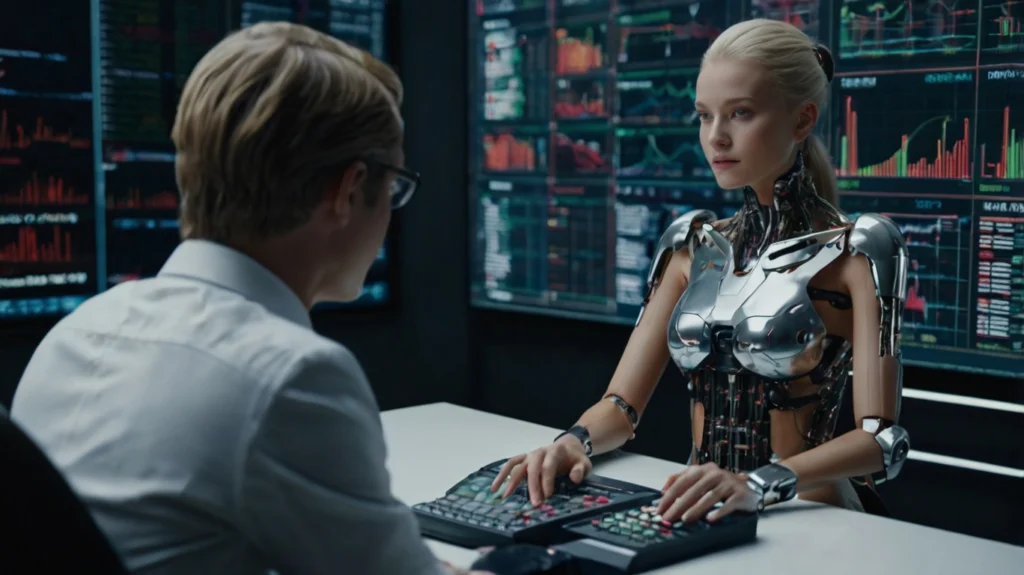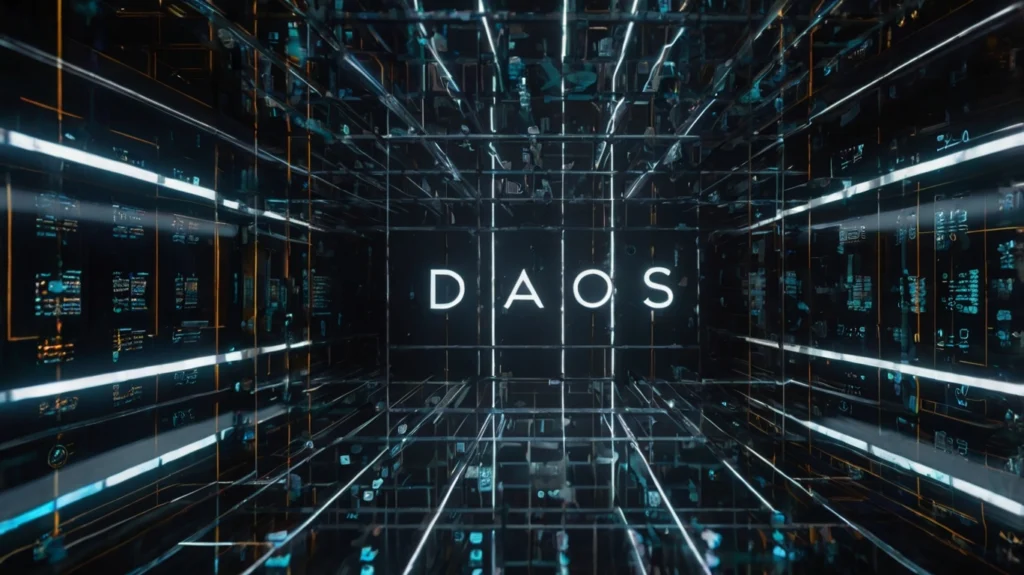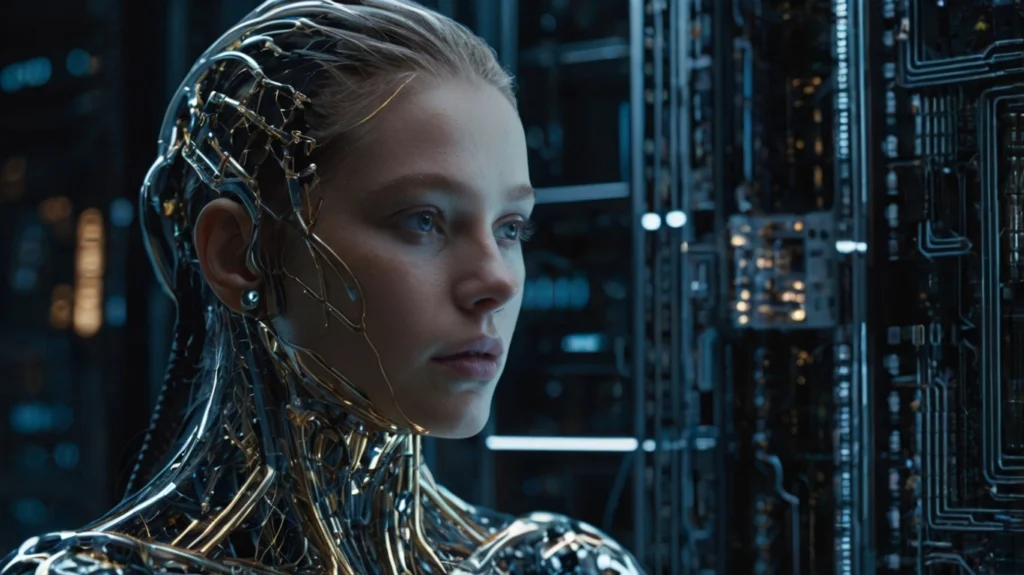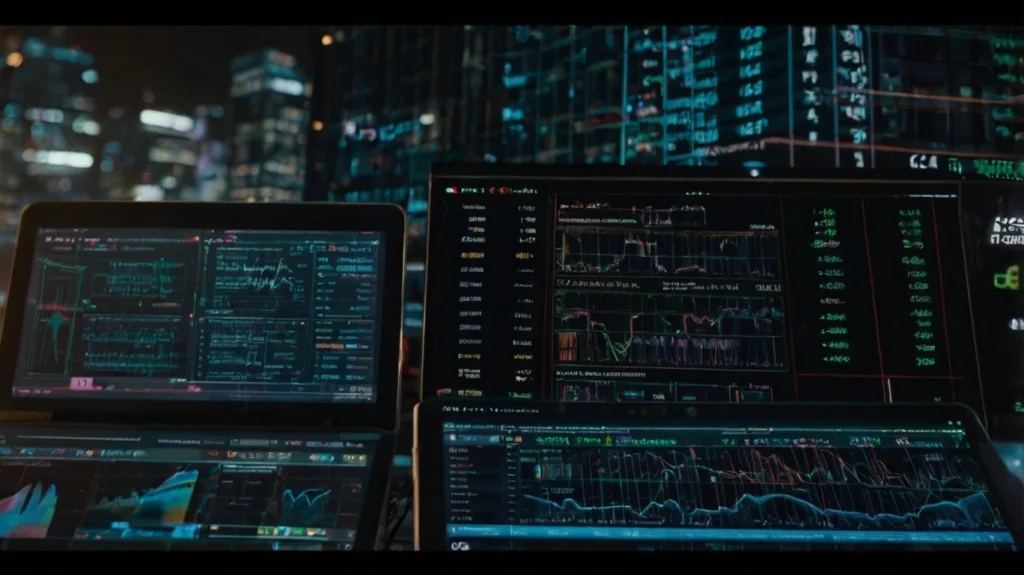
Autonomous finance represents a new frontier in financial technology, merging the power of artificial intelligence with decentralized financial services. Built on blockchain, autonomous finance uses AI-driven Decentralized Autonomous Organizations (DAOs) to operate financial services independently, without human intervention or traditional intermediaries like banks. Imagine a world where AI-powered DAOs govern lending protocols, manage investment portfolios, or even create new financial products, analyzing market trends and executing transactions in real-time.
What Are DAOs and How Do They Work?
Decentralized Autonomous Organizations are blockchain-based entities that operate through smart contracts and are governed by code. Traditional DAOs are designed to enable decentralized decision-making, where members of the community vote on major decisions. This model removes the need for centralized control, theoretically making the organization more transparent, efficient, and democratic.

DAOs operate using smart contracts—self-executing contracts where the terms of agreement are coded. This means that DAOs can automatically manage funds, process transactions, or execute decisions based on pre-defined rules. They can be used for various applications, from managing communities to controlling DeFi protocols.
The Rise of AI in DAOs
AI’s integration with DAOs introduces the concept of AI-driven autonomous finance, where AI algorithms handle tasks that previously required human oversight. By combining blockchain’s transparency with AI’s analytical power, AI-driven DAOs can optimize financial decisions, manage risk, and even create new financial products based on data analysis and market patterns.
For example, in a lending DAO, AI can assess risk profiles of borrowers, adjust interest rates dynamically, and even predict defaults, creating a more robust lending protocol. Imagine a scenario where an AI-powered DAO manages investments by continuously analyzing market data, forecasting trends, and reallocating funds automatically for maximum returns. This convergence of AI and blockchain offers a glimpse into a future where finance operates with minimal human intervention.
Key Benefits of AI-Driven DAOs
- Efficiency and Automation: AI-driven DAOs can process vast amounts of data at speeds humans can’t achieve, making decisions faster and more efficiently.
- Reduced Bias and Increased Fairness: By removing human biases, AI-driven DAOs create a more impartial financial environment where decisions are based on data rather than subjective judgment.
- Continuous Adaptability: AI algorithms can be trained to adapt based on new data, meaning they can keep pace with market changes in real-time, rebalancing and optimizing without any downtime.
- 24/7 Operation: Unlike traditional finance, AI-driven DAOs can function 24/7, making decisions and processing transactions anytime, anywhere, contributing to global inclusivity.
Recent Developments and Real-World Examples
Several blockchain and DeFi projects are already exploring the potential of AI-driven DAOs, though the technology is still in early stages. Here are a few prominent examples:

- SingularityDAO: SingularityDAO combines AI and blockchain to create a decentralized finance ecosystem with “DynaSets,” or dynamically managed portfolios. The AI models analyze the market continuously to make optimal trading decisions without human intervention.
- Fetch.AI: This project uses AI to power an autonomous “economic internet” that links agents to form dynamic DeFi ecosystems. Fetch.AI automates many traditional financial functions, such as lending and staking, without needing human input.
- MakerDAO and Machine Learning Models: MakerDAO, a leading DeFi platform, has been exploring machine learning to assist in stablecoin governance. By leveraging AI to predict market volatility, it can more accurately maintain stability for DAI, MakerDAO’s stablecoin, without the need for constant manual intervention.
Potential Applications of AI-Driven DAOs in Finance
AI-driven DAOs hold transformative potential for the financial sector by automating complex decision-making processes and adapting to real-time data changes. Let’s look deeper into how this automation could redefine core financial services.
Lending Protocols
AI-powered DAOs in lending protocols are game-changers for assessing and managing credit risk. Unlike traditional lenders that rely heavily on credit scores, AI-driven DAOs could assess a borrower’s risk profile by analyzing a wide array of historical data, including transaction histories, investment behavior, and even social factors. By applying machine learning algorithms, they can detect nuanced patterns in borrower data, offering a more accurate prediction of repayment behavior. This approach could lead to personalized, dynamic interest rates that fluctuate based on the borrower’s current risk profile, rather than standardized rates applied broadly. For example, if a borrower’s data shows consistent repayments, the DAO could autonomously reduce their interest rate, creating a fairer, more responsive lending environment.
Decentralized Asset Management
AI-driven DAOs are set to revolutionize asset management within DeFi ecosystems by using predictive analytics to dynamically adjust portfolio allocations. Traditional fund managers face inherent biases and limitations in processing vast, real-time data. In contrast, AI-driven DAOs can continuously analyze market trends, volatility levels, and even sentiment data to optimize asset allocations for maximum returns. This system operates without emotional bias, acting solely based on data-driven predictions. For example, if certain assets show increased volatility, the AI can quickly reduce exposure to those assets, while reallocating capital toward more stable options, improving fund performance and reducing risk.
Insurance Protocols
Insurance is another area where AI-driven DAOs can streamline processes by autonomously evaluating claims and adjusting premiums. Through AI’s ability to analyze behavioral data and historical claims, insurance DAOs could personalize premiums in real time. For example, a DAO could increase or decrease an individual’s premium based on recent health data, such as exercise patterns, dietary habits, or even environmental factors, ensuring that policyholders are charged fairly. This automated, data-centric approach enhances efficiency in claims management, enabling faster payouts and reducing fraud through anomaly detection.
Automated Governance
In DAOs requiring robust community governance, AI tools can assist by analyzing proposal outcomes, member behavior, and overall sentiment to provide insights that guide decision-making. By identifying patterns in voting behavior, AI can help the community make informed decisions, especially in complex scenarios where the stakes are high. Furthermore, the system could autonomously propose new governance initiatives based on trending issues or concerns voiced by members, adding a layer of proactive governance. For instance, if sentiment analysis shows rising concerns around security protocols, the AI-driven DAO might propose a vote to improve system security, acting autonomously to safeguard the DAO’s interests.
These applications illustrate the transformative power of AI-driven DAOs in finance, enhancing efficiency, fairness, and autonomy. By leveraging AI’s capabilities, DAOs offer a glimpse into a future where financial services operate independently, adapting to user needs and market changes without human intervention.
Challenges and Risks of AI-Driven DAOs

- Data Privacy Concerns: Since AI-driven DAOs analyze user data to make decisions, there are concerns about data privacy and security. Blockchain’s transparency could exacerbate these issues if not managed properly.
- Complexity and Accountability: The autonomous nature of AI-driven DAOs raises questions about accountability. If an AI-driven DAO makes a bad decision, who is held responsible? The DAO? The original programmers? This question complicates regulation and legal accountability.
- Unpredictable AI Behavior: Machine learning models can be unpredictable, and if not properly tested, they might make decisions that could negatively impact the community or users. Ensuring transparency in AI decision-making processes is crucial.
- Security Risks: Both DAOs and AI systems are vulnerable to hacking and manipulation. If an AI-driven DAO is compromised, it could lead to financial losses on a large scale. Regular audits and robust security protocols are essential to mitigate these risks.
The Future: AI-Driven DAOs and the Decentralized Economy
The potential of AI-driven DAOs to reshape the financial ecosystem is expansive, offering a glimpse into an era where fully autonomous financial organizations operate independently yet synergistically within a global, decentralized network. This vision is especially relevant for regions where traditional banking systems remain inaccessible or costly, as AI-powered DAOs could bring financial inclusion to underserved populations. By utilizing AI for decision-making and governance, DAOs can autonomously manage savings, lending, investments, and other services, minimizing costs and inefficiencies associated with intermediaries.
Moreover, as AI-driven DAOs evolve, they could create an ecosystem of interdependent entities where each DAO serves a unique function or financial service, such as lending, insurance, and asset management. This network of autonomous DAOs could interact and support one another to ensure stability and mutual benefit, dynamically responding to economic conditions and market needs without central oversight. Such a network might even conduct inter-DAO lending or insurance, distributing risk across the ecosystem in a way similar to diversified portfolios in traditional finance but on a global, decentralized scale.
This model presents a groundbreaking alternative to conventional economies dominated by centralized banks and corporations, paving the way for more equitable access to financial resources. Additionally, an interconnected network of DAOs could potentially stabilize decentralized finance (DeFi) markets, as DAOs with different risk profiles and financial functions could support each other during times of economic turbulence, creating a more resilient decentralized economy.
Breaking down the barrier
The rise of AI-driven DAOs in finance represents an exciting step toward a future of fully autonomous, data-driven decision-making in the financial world. While the potential for innovation is enormous, so are the risks. Privacy concerns, security challenges, and the need for accountability are real issues that will need to be addressed as this technology matures. However, if these challenges can be overcome, AI-driven DAOs have the potential to democratize finance, eliminate biases, and create a truly global and inclusive financial ecosystem.
As we look ahead, the integration of AI and DAOs could bring a new era of decentralized finance that operates independently, transparently, and efficiently—heralding a powerful evolution in the world of finance.
Must Read : Quantum Computing vs. Blockchain

